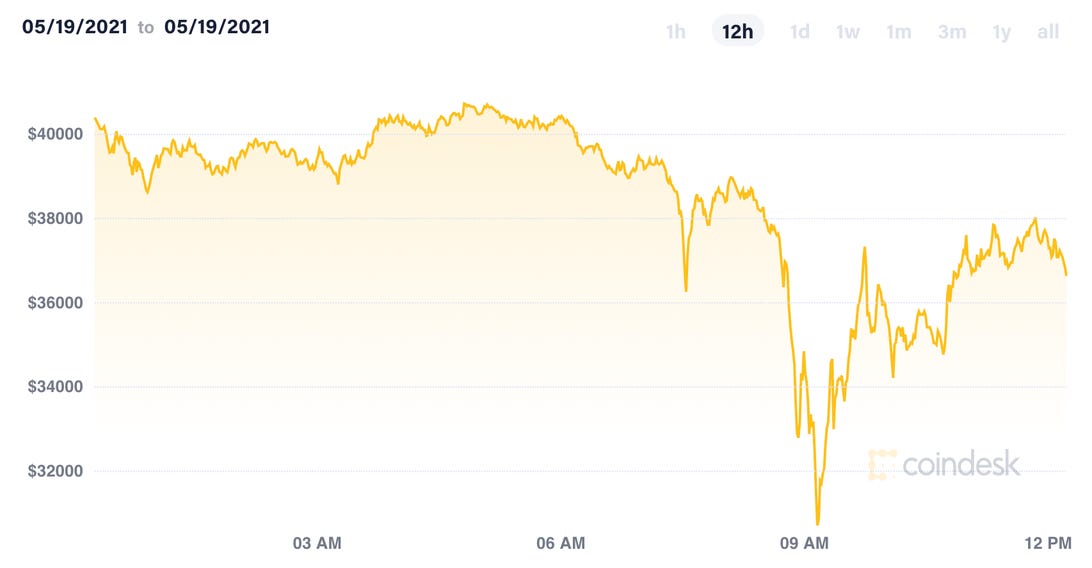Bitcoin has seen much better days.
Getty Images
Bitcoin, Dogecoin, Ethereum and every cryptocurrency available had a terrible week. Prices began falling Wednesday following the news of China reaffirming its ban on the crypto services for its financial institutions. Then, after a brief rebound Thursday, prices fell again Friday when a statement from a meeting among top Chinese officials called for what could be disastrous actions against cryptocurrency.
“We should be more alert and look for potential risks,” a statement from the meeting said, according to Coindesk. “We should crack down on bitcoin mining and trading activities and prevent individual risks from being passed to the whole society.”
The value of Bitcoin fell sharply after the news from the meeting came out Friday morning, reaching a low of $33,590. It was at a little over $41,000 just hours before. Dogecoin and Ethereum also saw their values slip, by 10% and 12%, respectively.
The cryptocurrency industry had its first gut punch come Tuesday, as the China Internet Finance Association said it won’t allow the country’s financial institutions to partake in any business related to cryptocurrency, due to the volatile nature of the digital coins, according to a Chinese media report spotted by Coindesk on Wednesday. This position isn’t new. China took a similar stance back in 2017, which also resulted in a massive Bitcoin selloff.
“The price of virtual currency has soared and plummeted, and virtual currency trading speculation has rebounded, which has seriously violated the safety of the people’s property and disrupted the normal economic and financial order,” the report said (via Google Translate).

Not the kind of morning Bitcoin owners wanted to see.
Coindesk
Bitcoin’s price dropped Wednesday morning to a low of just above $30,000, then rebounded to $37,000, according to Coindesk — a loss of 12% for the day. Ethererum and Dogecoin also saw drops at about the same time.
Since the start of the pandemic, Bitcoin, along with other cryptocurrencies, saw its value climb, reaching a peak of almost $65,000 in April. Since then, the price has been coming down because of growing concern about the large energy consumption required for Bitcoin. Last week, Tesla CEO Elon Musk said his company would no longer accept Bitcoin as payment because its use is increasing the burning of coal for power.
The popularity of Bitcoin and other cryptocurrencies attracted the attention of President Joe Biden. The US Treasury proposed a requirement for individuals to report any cryptocurrency transfers over $10,000 to the IRS. The proposal is also included in the president’s American Family Plan. A similar rule is already in place in banks for any deposits over that same amount.
